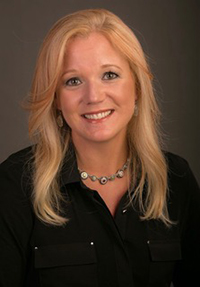
Tom Lachiusa
As Americans head into a third year of living during a pandemic, therapists around the country say they are on the front lines of a mental health crisis.
Social workers, psychologists and counselors from every state say they can’t keep up with an unrelenting demand for their services, and many must turn away patients — including children — who are desperate for support, according to a New York Times article.
The newspaper asked 1,320 mental health professionals to explain how their patients were coping as pandemic restrictions abated. General anxiety and depression are the most common reasons patients seek support, the paper said. Family and relationship issues prevail therapy conversations.
NASW member Tom Lachiusa, an LCSW in Longmeadow, Mass., is quoted in the article. “All the therapists I know have experienced a demand for therapy that is like nothing they have experienced before,” he said. “Every available time slot I can offer is filled.”
While there were moments of optimism about telemedicine and reduced stigma around therapy, the responses offered a mostly grim picture of a growing crisis.

Sara Rodrigues
Sara Rodrigues, a social worker who co-founded Fall River’s Balanced Learning Center and an incoming member of the Fall River School Committee, said her nonprofit has seen a huge increase in families looking for services. Many of them are worried about children who are experiencing anxiety, panic-related issues, depression, and prolonged grief.
In a story posted at The Herald News in Fall River, Mass., Rodrigues said the pandemic has stretched on for so long, it has left children — and everyone else — in a state of limbo and uncertainty.
She said educators should focus on ensuring that students feel safe and comfortable in school instead of worrying about things like declining state comprehensive assessment scores. Building positive relationships with students should be the top priority and will make other tasks easier, she said. “It’s connection over correction. The academics will come, but kids who aren’t regulated won’t be able to learn.”
Helping children learn how to identify and express their feelings goes a long way toward helping them express difficult emotions in a healthy way, Rodrigues says in the article.

Sabrina Spotorno
Retail alcohol sales spiked 20% during the first six months of the pandemic. A study shows Americans drank 14% more often in response to pandemic-related stress, according to an article posted at thelily.com.
However, more people are considering staying sober for a period. A New Year tradition called “Dry January” has helped to grow this trend.
“A month off and then some can do so much good for your overall well-being, your memory, your sleep, your digestion,” said NASW member Sabrina Spotorno, a clinical social worker and credentialed alcoholism and substance abuse counselor at Monument, an online platform for alcohol treatment and recovery. “The sky’s the limit, really, as you phase out from that relationship with alcohol,” she said.
Spotorno recommends seeking a medical assessment before starting a sobriety journey. “We do encourage just having that conversation with a medical provider,” she said. Doctors at Monument offer 20-minute consultations to help people determine the best way to wean off alcohol.

Sue English
Differences in parenting styles and views on how to raise children can lead to one partner interfering with their spouse while they are setting boundaries and disciplining their child, says NASW member Sue English, LCSW, an individual and family therapist in Naperville, Ill. (englishmeadows.org).
Talking with your partner early on about how to raise your children can ease these differences, English notes in an article posted at PsychCentral.com. In addition, English says undermining your partner’s opinion on parenting might not be about parenting at all.
“If there’s conflict within your relationship that includes pent-up frustration, undermining your partner’s position could be a passive-aggressive move to regain a sense of power or control,” she says.
In this case, communication and mutual respect are crucial — especially for co-parents. As your child gets older, you’ll likely want to adapt your approaches. Committing to regular communication without your child present is critical, the article says.